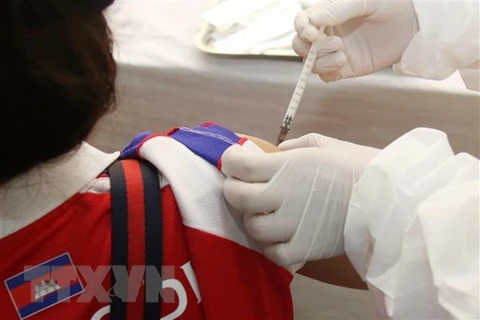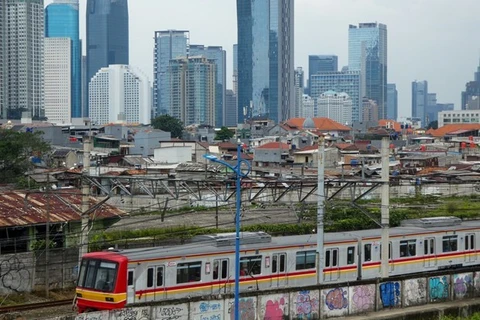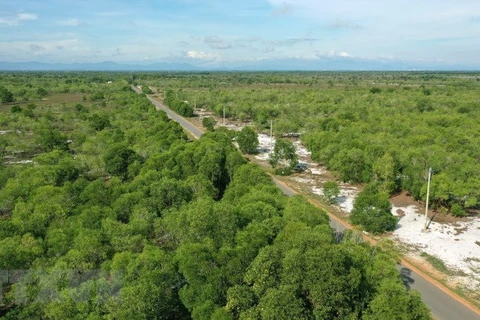 People wait for their turn to get vaccinated against COVID-19 in Bangkok (Illustrative photo: Xinhua/VNA)
People wait for their turn to get vaccinated against COVID-19 in Bangkok (Illustrative photo: Xinhua/VNA) Two years after the pandemic began, the report says growth prospects are brighter for economies and they are expected to expand 5.1 percent this year as nearly 60 percent of the population fully vaccinated against COVID-19, allowing the economies to reopen.
ADB President Asakawa Masatsugu said the pandemic has led to widespread unemployment, worsening inequality, and rising poverty levels, especially among women, younger workers, and the elderly in Southeast Asia.
Among the most affected are unskilled workers and those working in retail and the informal economy, as well as small businesses without a digital presence.
ADB encourages Southeast Asian governments to invest in smart, green infrastructure and adopt technological innovations to reinvigorate economic growth, he added.
The ADB report calls on Southeast Asian governments to allocate more resources to help health systems deliver care, improve disease surveillance, and respond to future pandemics.
Southeast Asia’s economic growth could rise 1.5 percentage points if health spending in the region reaches about 5 percent of gross domestic product (GDP), it predicts.
The report recommends that countries pursue structural reforms to boost competitiveness and productivity, including simplifying business procedures, reducing trade barriers, and encouraging small enterprises to adopt new technologies.
Governments should maintain fiscal prudence to reduce public deficits and debts and modernise tax administration to enhance efficiency and broaden the tax base.
Still, the region faces global headwinds, including emerging COVID-19 variants, the tightening of global interest rates, supply chain disruptions, and higher commodity prices and inflation, the report warned./.
VNA























